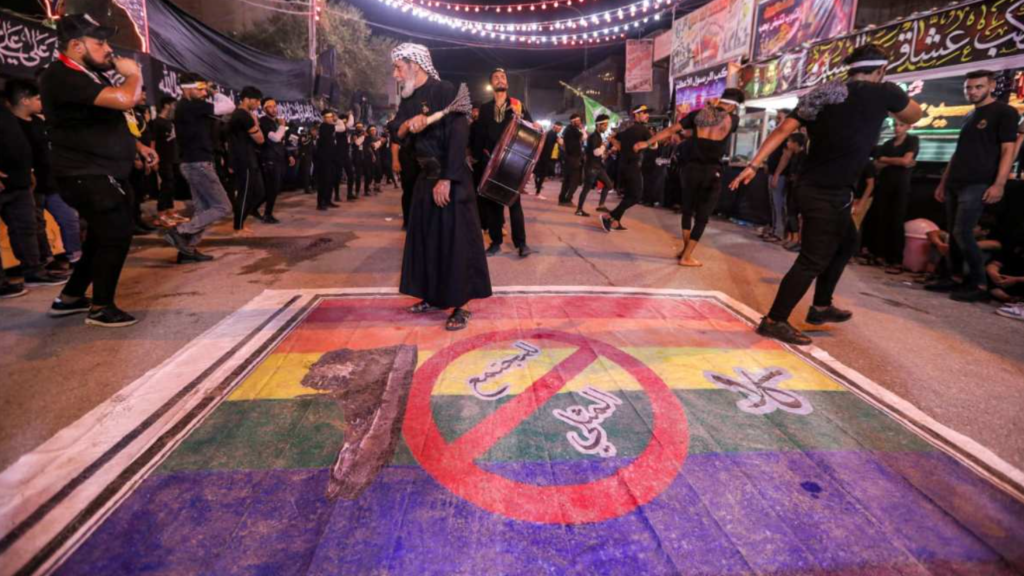Iraq’s parliament has recently approved a new law that criminalizes same-sex relationships, imposing jail sentences ranging from 10 to 15 years for those found guilty.
Additionally, the legislation targets transgender people, with prison terms of one to three years.
Supporters of the bill argue that the changes are designed to uphold the country’s religious and cultural values.
However, human rights groups have voiced concern over the new law, indicating that it represents a further violation of the rights of LGBT individuals in Iraq.
The legislation’s scope goes beyond same-sex relationships, as it also punishes those who promote homosexuality or prostitution, doctors who perform gender reassignment surgery, men who “intentionally” act like women, and those who engage in “wife swapping.”
An earlier draft of the bill had proposed the death penalty for same-sex relationships, but this was revised after facing criticism from the United States and other Western countries.
MP Amir al-Maamouri told Shafaq News that the updated law was “a significant step in combating sexual deviancy given the infiltration of unique cases contradicting Islamic and societal values.”
The passing of the bill was postponed until after the visit of Iraq’s Prime Minister Mohamed Shia al-Sudani to the US, according to lawmaker Raed al-Maliki.
He mentioned that the delay was to avoid impacting the visit, emphasizing that it was “an internal matter and we do not accept any interference in Iraqi affairs.”
LGBT individuals in Iraq have historically faced targeting by authorities under various morality laws.
Human Rights Watch and other organizations have documented numerous cases of abduction, torture, rape, and even murder against LGBT people in Iraq.
The passage of this legislation has sparked criticism from the international community.
The US State Department expressed concern, noting that it threatens human rights and freedoms and could adversely impact Iraq’s ability to diversify its economy and attract foreign investment.
UK Secretary of State Lord David Cameron also weighed in, describing the law as “dangerous and worrying.”
He added, “No one should be targeted for who they are,” urging the Iraqi government to protect human rights and freedoms for all individuals without discrimination.
Overall, the new law’s passage raises significant concerns about the treatment of LGBT individuals in Iraq and its broader implications for human rights and economic development.
IG Koome Calls For As Schools Reopen For Second Term Amid Rains

